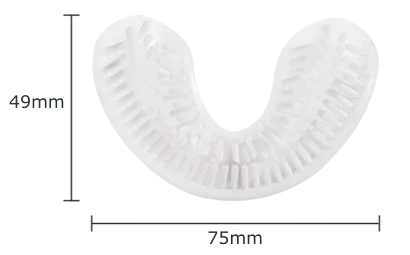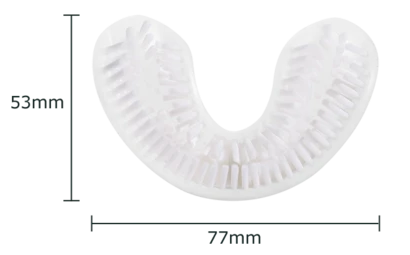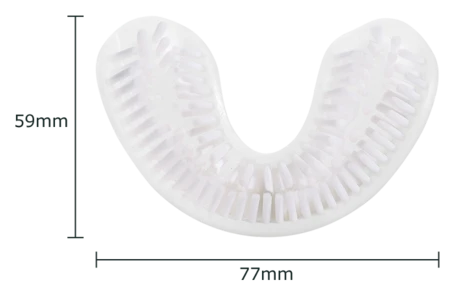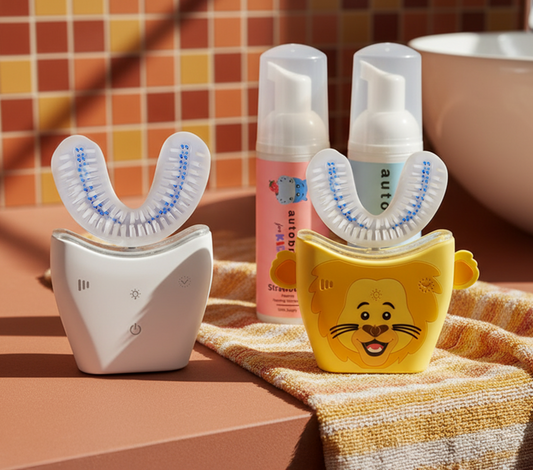
Is Aggressive Brushing Ruining Your Gums?
It's a routine most of us follow without a second thought: wake up, brush our teeth, and start our day. But could the way we're brushing our teeth be doing more harm than good? The answer, for many, is a surprising yes. Aggressive brushing can cause a myriad of dental problems, most notably gum damage. So why do so many of us fall into the trap, and what can we do to avoid it?
Why People Brush Aggressively
There's a common misconception that to have perfectly clean teeth, one must brush hard and vigorously. This myth is perpetuated by the idea that more force equals more plaque removal. Moreover, some people equate the "squeaky clean" feeling with efficacy, thinking that if they don’t brush hard enough, they’re leaving behind germs and debris. Others may aggressively brush out of habit or because they're in a rush and believe that brushing harder will shorten the time they need to spend on oral care.

Signs of Aggressive Brushing
Wondering if you're brushing too hard? Here are some telltale signs:
- Frayed Toothbrush Bristles: If your toothbrush looks worn out or the bristles are frayed long before the three-month replacement mark, it's a clear sign you're applying too much pressure.
- Receding Gums: Over time, hard brushing can cause the gums to recede, exposing more of the tooth's root. This not only affects your smile but can lead to sensitivity and other oral issues.
- Tooth Sensitivity: Aggressive brushing wears down the enamel, leading to heightened sensitivity when consuming hot or cold foods and beverages.
- Tooth Abrasion: This refers to notches near the gum line caused by the forceful action of brushing. It's a clear indicator that the enamel is wearing away.

The Impact on Your Smile and Gums
Your gums play a vital role in your oral health, acting as a protective barrier for your teeth. When gums recede due to aggressive brushing, they leave the roots of the teeth exposed and susceptible to decay. Not only is this harmful to oral health, but it can also affect the aesthetic appearance of your smile, making teeth appear longer.
Moreover, receding gums can lead to pockets between the teeth and gums where harmful bacteria can accumulate. Left unchecked, this can result in gum disease, a condition linked to various health issues like heart disease and diabetes.
Combatting Aggressive Brushing
- Be Mindful: Being aware is the first step. Recognize that brushing hard doesn't necessarily equate to better cleaning. It's the technique, not the force, that matters.
- Use a Special Needs Soft-Bristled Toothbrush: Soft bristles are gentler on the gums and enamel. They can effectively remove plaque without causing damage.
- Brush in Circular Motions: Instead of a back-and-forth motion, brush using small, gentle, circular strokes. Ensure you cover all surfaces: the outer, inner, and chewing parts of every tooth.
- Try an AutoBrush: One way to ensure you're brushing correctly is by using an AutoBrush. This device has soft bristles and a whole mouth brush head that ensures you brush in a circular technique, significantly limiting the complications associated with aggressive brushing.

Conclusion
Protecting your gums and teeth is paramount for maintaining overall oral health. While the intent behind aggressive brushing may be to achieve a cleaner mouth, the outcome can often be quite the opposite. By being aware of the dangers and adopting a gentler, more effective brushing technique, you can ensure a healthier and more radiant smile. Consider innovations like the AutoBrush to guide you towards better oral care habits. Remember, it's not about brushing harder; it's about brushing smarter.













16 comments
] Ukalasip ywq.nuru.tryautobrush.com.xmt.ll http://slkjfdf.net/
] Ukalasip ywq.nuru.tryautobrush.com.xmt.ll http://slkjfdf.net/
] Onamokm xbt.yyur.tryautobrush.com.dsd.of http://slkjfdf.net/
] Onamokm xbt.yyur.tryautobrush.com.dsd.of http://slkjfdf.net/
] Itkuluday qal.xxnd.tryautobrush.com.utm.zf http://slkjfdf.net/